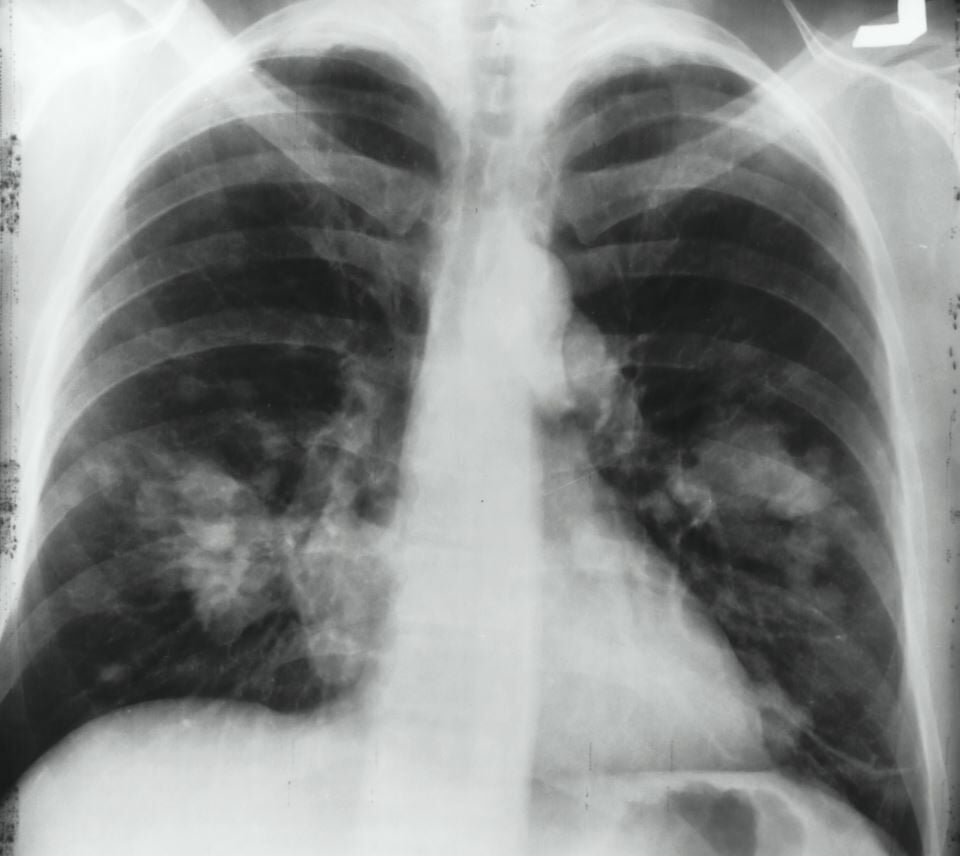Cases of the disease have increased by more than 30% in recent years, with more than 90% caused by tobacco.
Every year, lung cancer is diagnosed more frequently in its early stages. By age group, new cases are concentrated in the group over 75 years old (32%), the 65-74 year old group (32%), followed by the 55-64 year old group (25%), and the 15-54 year old group accounts for the cumulative number of cases 11%. Therefore, more than a third of patients diagnosed with this disease are under the age of 65, say Drs. Antonio Álvarez Kindelán and Luis Manuel Entrenas, directors of the Department of Thoracic Surgery and Respiratory Medicine at Quirónsalud Córdoba Hospital, respectively.
Doctors stress that this type of cancer – whose World Day was celebrated last Friday – usually does not produce easily identifiable symptoms in its initial stages and there is no equivalent of a breast cancer mammogram for early detection of lung cancer. However, there is growing evidence that screening high-risk patients for lung cancer by low-dose CT is beneficial, with recent international registries showing that this can increase treatment options and extend survival.
In any case, certain symptoms can indicate the emergence of such tumors, such as a cough that lasts for more than 10 days without an obvious cause, or a chronic cough that worsens and coughs up blood. Coughing up phlegm for several days, persistent bronchitis, recurring respiratory infections, difficulty breathing, chest pain, weight loss, or fatigue for no apparent reason. If any of these symptoms occur, it is recommended to see a specialist so that the disease can be detected as quickly as possible, although in many cases these symptoms are caused by other causes than cancer, “but consultation is always recommended”, they stress.
Smokers, long-time smokers, and passive smokers should take extreme precautions because smoking is a major risk factor for lung cancer.
Cancer incidence rates in Europe continue to increase, according to the latest estimates released by the European Cancer Information System (ECIS), part of the European Commission. In 2022, 2.7 million new cancer cases will be diagnosed. If male and female cancers are considered together, lung cancer is the fourth most common cancer, with 409,467 cases in 2022, surpassing breast, colorectal and prostate cancers in first place. cancer.
In 2023, some 279,000 new cases of cancer will be diagnosed in Spain, accounting for 57% of the total number of men. The most common is colorectal cancer with 42,721 new cases, followed by breast cancer – 35,001 cases – and lung cancer – 31,282 cases. – and prostate cancer – 29,002-. In men, the most common cancers are prostate, colorectal, lung, and bladder cancers, while in women, the most common cancers are breast, colorectal, lung, and uterine corpus cancers.
Lung cancer is the most deadly type of cancer in Spain and around the world, with doctors explaining that the disease constitutes the “number one” health problem. Dr. Álvarez Kindelán noted that in the early stages, surgery is the best treatment option with curative intent, performed in a minimally invasive manner through video-assisted thoracoscopy or robotic surgery. With both options, patients recover very quickly and can return to their normal lives in just a few days.
Immunotherapy and targeted therapy
In recent years, a number of highly relevant diagnostic and therapeutic methods have been developed, as well as new molecular criteria to more precisely characterize lung cancer types. Imaging methods such as PET and PET-CT are currently available, along with advanced bronchoscopic techniques for biopsy of tumors and lymph nodes via controlled ultrasound (EBUS), and bronchoscopic navigation methods that allow us to localize small tumors via radio-guided endoscopy.
Other treatment options include stereotactic radiation therapy for small tumors in patients who are not candidates for surgical treatment, “with which very positive oncological outcomes can be achieved.”
Dr Entrenas insists that avoiding tobacco exposure can prevent the development of lung cancer, which is why “influence promotion of smoking cessation is critical as a strategy to reduce mortality from this disease”. .
The main cause associated with the development of this cancer is smoking. However, some lung tumors are associated with genetic changes, and in recent years, new therapies have been developed to treat such tumors and, depending on the stage of the disease, extend survival.
Both experts highlighted the rising incidence of lung cancer in women due to the increasing number of smokers in Spain, accounting for 27% of all diagnosed cases every year.

